
The Underwater Jewel: Red Sea Coral Reef in Israel
Discover the vibrant underwater world of the Red Sea Coral Reef in Israel. This natural wonder is a haven for marine life and offers a unique experience for divers and snorkelers alike. Located in the southern part of Israel, near the city of Eilat, the Red Sea Coral Reef is renowned for its clear waters and stunning coral formations. The reef is teeming with over 200 species of coral and thousands of fish, creating a colorful underwater landscape. Whether you are a seasoned diver or a first-time snorkeler, the reef provides a mesmerizing glimpse into the marine ecosystem. The warm waters and excellent visibility make it an ideal spot for underwater photography, allowing you to capture the beauty of the reef up close. The Red Sea Coral Reef is not only a paradise for marine enthusiasts but also a place of scientific interest. Marine biologists study the reef to understand the delicate balance of its ecosystem. For visitors, the Coral World Underwater Observatory offers a chance to learn more about the species that inhabit these waters without getting wet. This observatory provides a unique opportunity to observe the reef from below the surface, making it accessible to everyone. In addition to the underwater attractions, the surrounding area offers stunning beaches and a range of water activities. From jet skiing to paddleboarding, there's something for everyone to enjoy. The nearby Eilat city is a bustling hub with restaurants, shops, and cultural sites, making it a perfect base for your Red Sea adventure.
Local tips in Red Sea Coral Reef
- Best time to visit is between April and October when the water is warm and visibility is high.
- Rent snorkeling gear from local shops if you don’t have your own.
- Visit the Coral World Underwater Observatory for a dry yet immersive experience.
- Stay hydrated and apply reef-safe sunscreen to protect the marine environment.
- Check weather conditions before planning a dive or snorkel trip.
The Underwater Jewel: Red Sea Coral Reef in Israel
Discover the vibrant underwater world of the Red Sea Coral Reef in Israel. This natural wonder is a haven for marine life and offers a unique experience for divers and snorkelers alike. Located in the southern part of Israel, near the city of Eilat, the Red Sea Coral Reef is renowned for its clear waters and stunning coral formations. The reef is teeming with over 200 species of coral and thousands of fish, creating a colorful underwater landscape. Whether you are a seasoned diver or a first-time snorkeler, the reef provides a mesmerizing glimpse into the marine ecosystem. The warm waters and excellent visibility make it an ideal spot for underwater photography, allowing you to capture the beauty of the reef up close. The Red Sea Coral Reef is not only a paradise for marine enthusiasts but also a place of scientific interest. Marine biologists study the reef to understand the delicate balance of its ecosystem. For visitors, the Coral World Underwater Observatory offers a chance to learn more about the species that inhabit these waters without getting wet. This observatory provides a unique opportunity to observe the reef from below the surface, making it accessible to everyone. In addition to the underwater attractions, the surrounding area offers stunning beaches and a range of water activities. From jet skiing to paddleboarding, there's something for everyone to enjoy. The nearby Eilat city is a bustling hub with restaurants, shops, and cultural sites, making it a perfect base for your Red Sea adventure.
When is the best time to go to Red Sea Coral Reef?
Iconic landmarks you can’t miss
Masada National Park
Experience the breathtaking beauty and rich history of Masada National Park, a UNESCO World Heritage site and a must-visit destination in Israel.
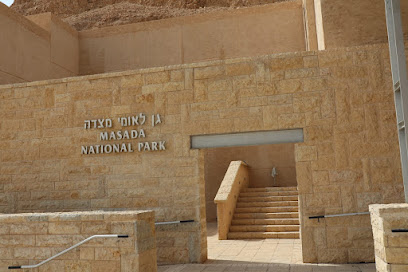
Underwater Observatory Park
Discover the mesmerizing underwater world at the Underwater Observatory Park in Eilat, where marine life and adventure await in the Red Sea.
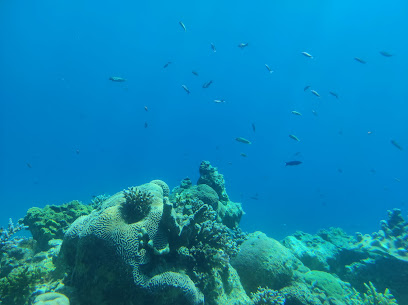
Eilat Coral Beach Nature Reserve
Explore the vibrant coral reefs and diverse marine life at Eilat Coral Beach Nature Reserve, a stunning treasure of the Red Sea.
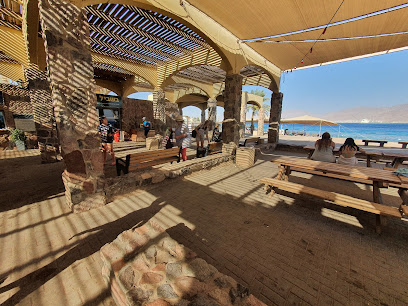
Dolphin Reef
Experience the magic of swimming with dolphins and exploring vibrant coral reefs at Dolphin Reef in Eilat, a unique marine sanctuary.
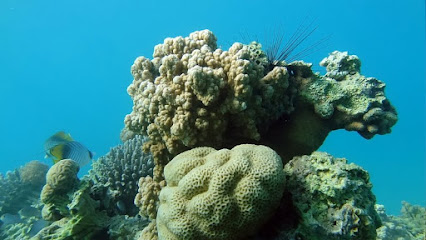
Mosh Beach
Discover Mosh Beach: Where exquisite dining meets the serene beauty of the Red Sea, perfect for relaxation and adventure in Eilat.
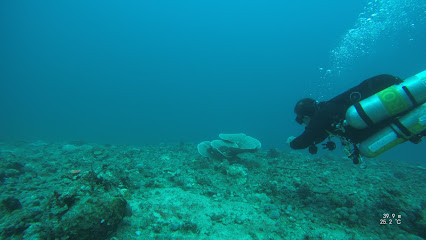
Dekel Beach
Experience the beauty and excitement of Dekel Beach in Eilat, where sun, sand, and sea come together for an unforgettable getaway.
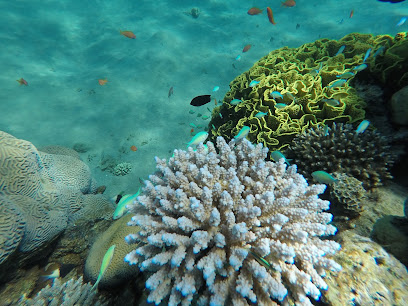
Musical Fountain Eilat
Experience the enchanting Musical Fountain in Eilat, where water, music, and lights create a mesmerizing spectacle for all ages.
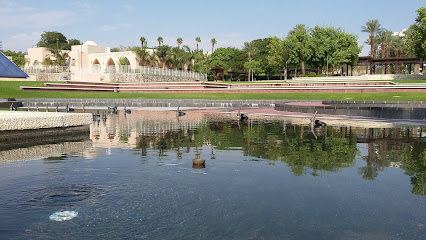
Red Canyon
Explore the stunning landscapes and vibrant geological formations at Red Canyon, a top tourist attraction in Israel for nature lovers and adventure seekers.
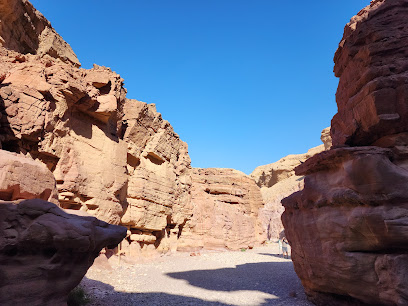
Dolphin Reef Beach
Discover the enchanting Dolphin Reef Beach in Eilat, where sun, sand, and sea come together for an unforgettable tropical adventure.
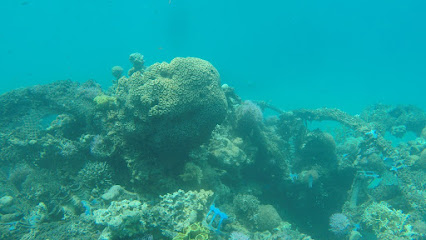
Nautilus Red Sea
Explore the breathtaking underwater world of the Red Sea at Nautilus Red Sea, Eilat's leading dive club offering unforgettable diving experiences.
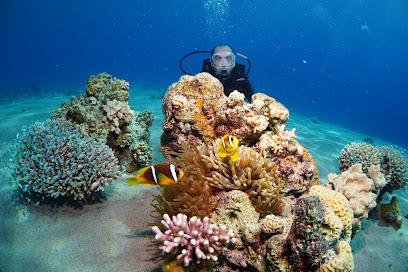
Coral Beach
Discover Coral Beach in Eilat, a haven of stunning coral reefs, vibrant marine life, and serene relaxation perfect for every beach lover.
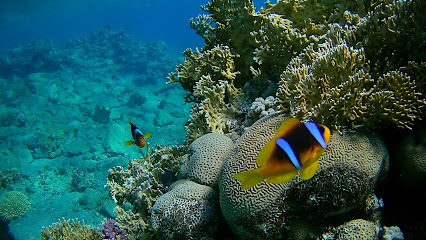
Coral World
Explore the vibrant underwater world at Coral World Eilat, a family-friendly aquatic center showcasing the beauty of marine life in the Red Sea.
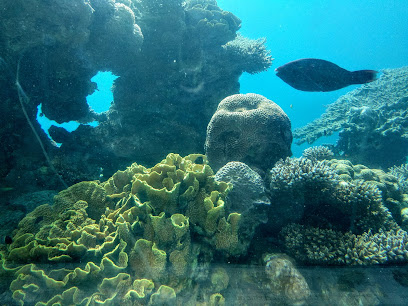
Migdalor Beach
Discover the beauty and tranquility of Migdalor Beach in Eilat, where stunning views and vibrant marine life await every visitor.
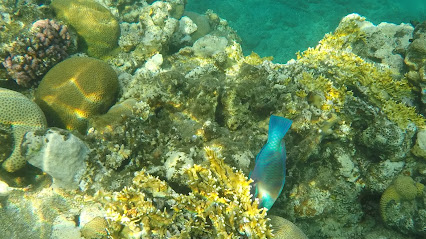
Red Sea view Lookout
Discover the stunning vistas and serene beauty of the Red Sea at the Red Sea View Lookout in Eilat, a perfect escape for tourists seeking tranquility and breathtaking views.
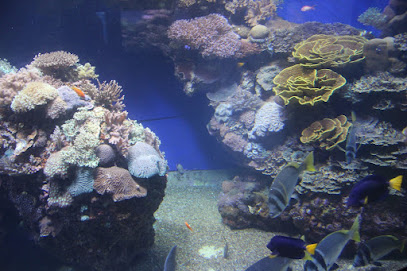
Unmissable attractions to see
Underwater Observatory Park
Discover the vibrant marine life of the Red Sea at Eilat's Underwater Observatory Park, an unforgettable experience for all ages.
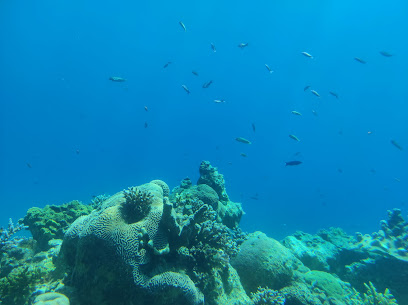
Israel Aquarium
Explore the mesmerizing underwater world at the Israel Aquarium, a premier destination for marine life enthusiasts in Jerusalem.
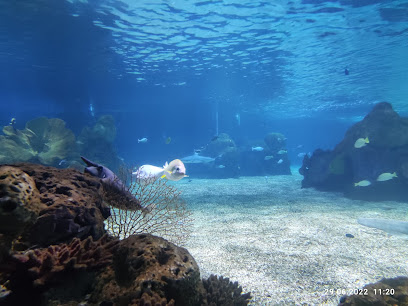
Yardenit
Explore Yardenit, a serene baptismal site on the Jordan River, rich in spirituality and natural beauty, perfect for pilgrims and tourists alike.
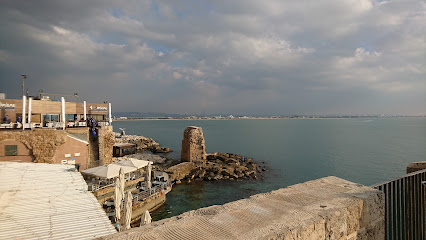
Eilat Coral Beach Nature Reserve
Discover the vibrant marine life and stunning coral reefs at Eilat Coral Beach Nature Reserve, a top destination for snorkeling and beach relaxation.
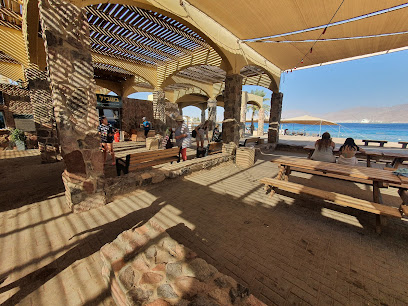
Dolphin Reef
Experience the thrill of swimming with dolphins at Dolphin Reef, Eilat's premier marine attraction, surrounded by stunning beaches and vibrant marine life.
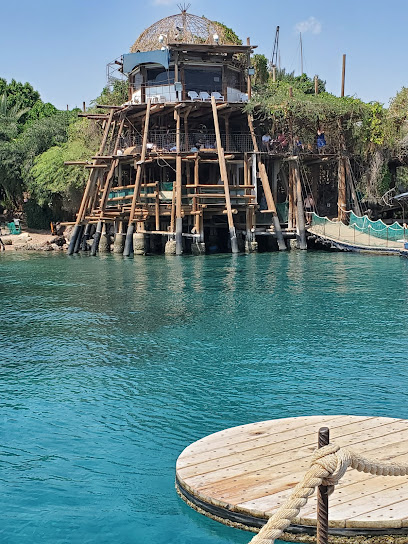
מערת הנטיפים
Discover the breathtaking landscapes and diverse wildlife at Ma'arat HaNetifim, a premier national park and hiking destination in Israel.
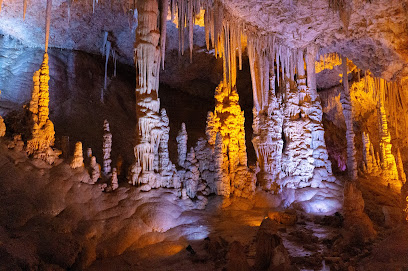
Mosh Beach
Discover Mosh Beach in Eilat, a stunning coastal destination perfect for sunbathing, dining, and water sports with breathtaking views of the Red Sea.
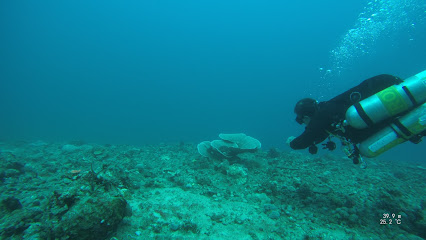
Aqua Kef
Explore Aqua Kef in Tiberias, a thrilling water park offering fun-filled activities against the scenic backdrop of the Sea of Galilee.
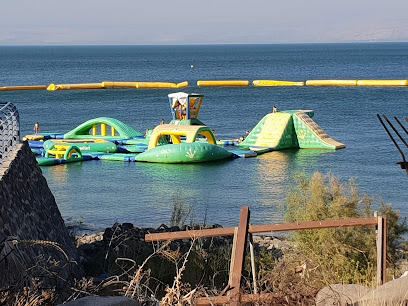
Dekel Beach
Discover the breathtaking beauty of Dekel Beach, where sun-soaked shores meet vibrant marine life in the heart of Eilat's stunning coastline.
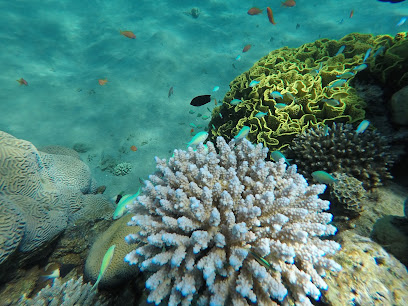
Red Canyon
Experience the breathtaking beauty of Red Canyon, Israel's stunning geological marvel and a paradise for nature lovers and adventure seekers.
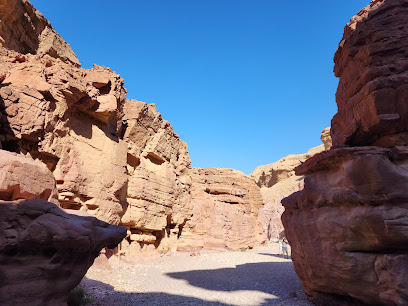
Japanese Garden (Snorkeling Site)
Explore the vibrant underwater world of the Japanese Garden in Aqaba, where stunning corals and marine life await snorkelers and divers alike.
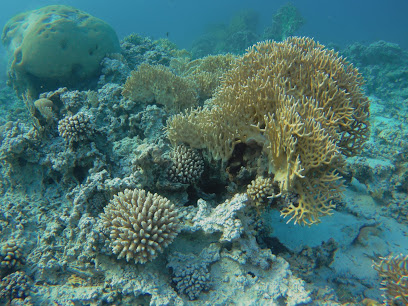
Ras Mohamed Nature Reserve
Explore the vibrant marine life and stunning landscapes of Ras Mohamed Nature Reserve, a national park in Egypt's South Sinai, ideal for nature lovers and adventure seekers.
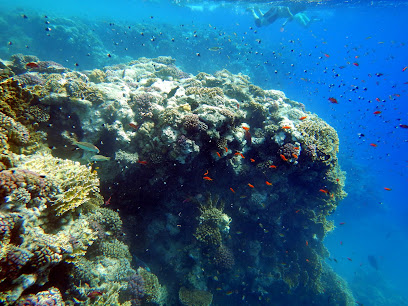
Kfar Nahum National Park
Discover the historical and natural wonders of Kfar Nahum National Park, a serene escape on the shores of the Sea of Galilee.
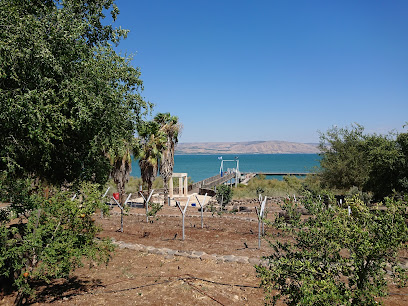
Blue Hole of Dahab
Explore the breathtaking Blue Hole of Dahab, a diver's paradise filled with vibrant coral reefs and captivating underwater landscapes.
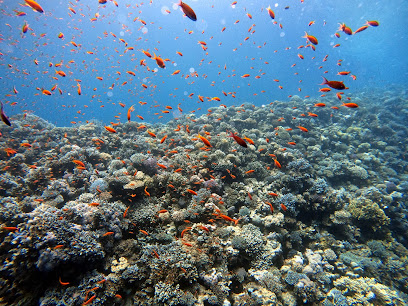
Abu Galoum
Explore the breathtaking beauty of Abu Galoum, a nature preserve in Egypt's South Sinai, known for stunning landscapes and vibrant coral reefs.
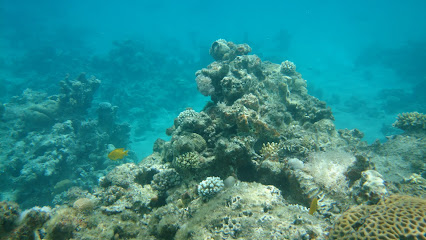
Essential places to dine
Mosh Beach
Discover Mosh Beach: Eilat's vibrant public beach offering delectable dining with stunning Red Sea views.
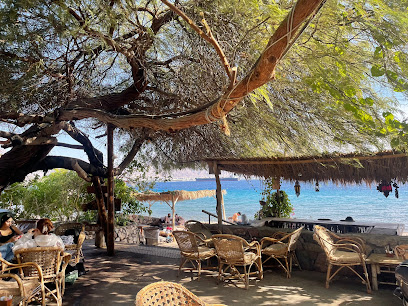
Omer's
Discover Omer's in Eilat: A culinary gem offering delicious hamburgers alongside exceptional vegan and vegetarian delights.
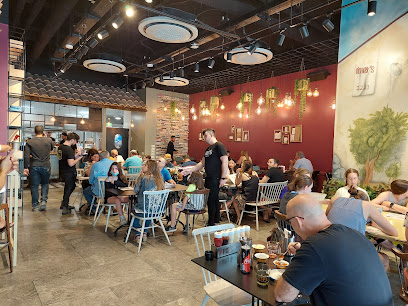
Fish Market
Discover Eilat's vibrant Fish Market: a paradise for seafood lovers with fresh catches and delicious barbecue delights.
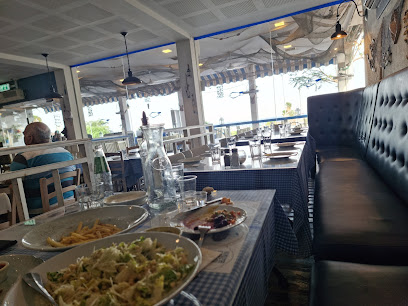
The Last Refuge
Discover exquisite seafood dining at The Last Refuge in Eilat; where culinary artistry meets stunning Red Sea views.
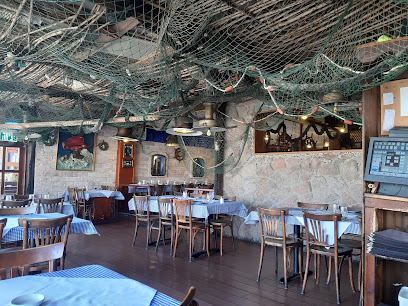
Nine Beach Eilat
Experience culinary excellence at Nine Beach Eilat with stunning sea views and exquisite Israeli cuisine in a vibrant atmosphere.
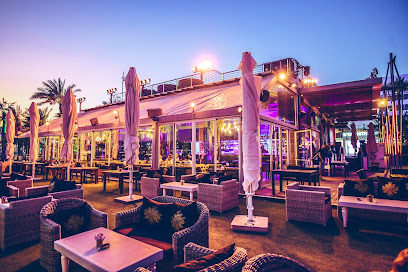
La Cuccina
Experience authentic Italian cuisine at La Cuccina in Eilat, where delicious flavors meet stunning seaside views for an unforgettable dining experience.
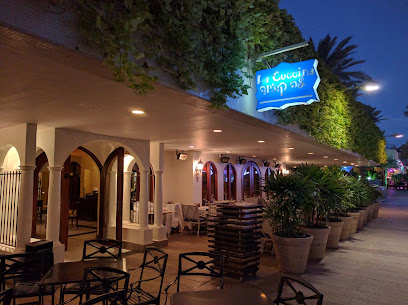
Taj Mahal
Experience authentic Middle Eastern cuisine at Taj Mahal near the breathtaking Dead Sea.
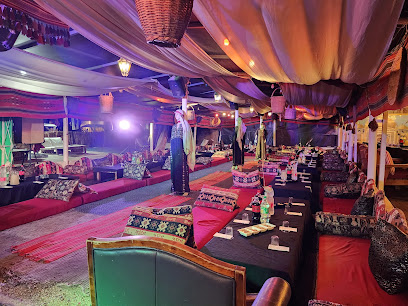
Bar Beach - ברביץ'
Discover exquisite dining at Bar Beach in Eilat, where delicious cuisine meets breathtaking views of the Red Sea.
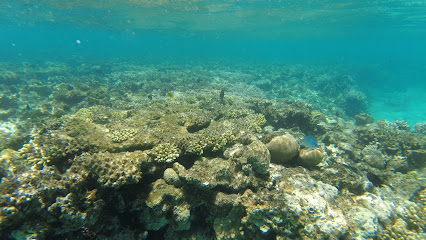
Ein Bokek Restaurant
Experience delectable cuisine with stunning views at Ein Bokek Restaurant near the breathtaking Dead Sea.
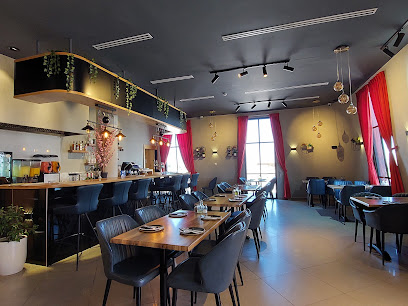
Sea Village - מסעדה ים תיכונית באילת
Discover the flavors of the Mediterranean at Sea Village in Eilat - where delicious cuisine meets stunning beachfront views.
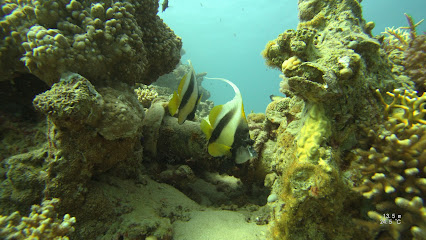
Yusuf's tent
Discover Yusuf's Tent in Eilat: Where local flavors meet stunning seaside views for an unforgettable dining experience.
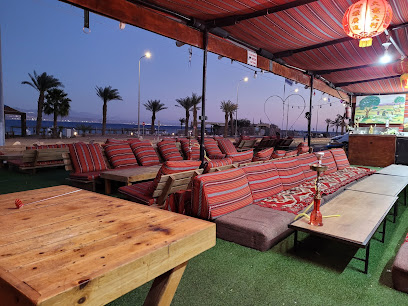
Dolphin Reef Restaurant
Experience exquisite dining at Dolphin Reef Restaurant in Eilat - where delicious food meets breathtaking sea views.
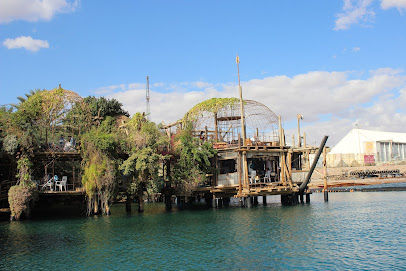
Red Sea Sup
Discover fresh seafood delights at Red Sea Sup in Eilat - where local flavors meet breathtaking views.
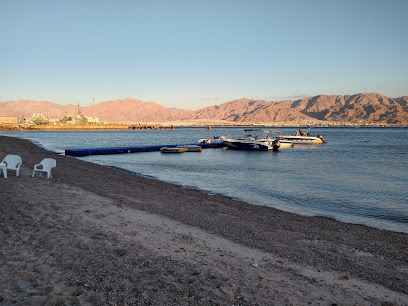
רק דגים
Discover exquisite seafood and Italian cuisine at רק דגים in Eilat - where fresh flavors meet vibrant atmosphere by the Red Sea.

Markets, malls and hidden boutiques
Alrov Mamilla Avenue
Experience the ultimate blend of shopping, dining, and culture at Alrov Mamilla Avenue - Jerusalem's vibrant shopping mall.
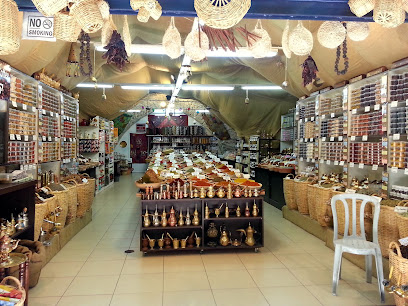
Grand Canyon Haifa
Discover the Grand Canyon Haifa, a premier shopping mall offering a unique blend of retail, dining, and entertainment in the heart of northern Israel.
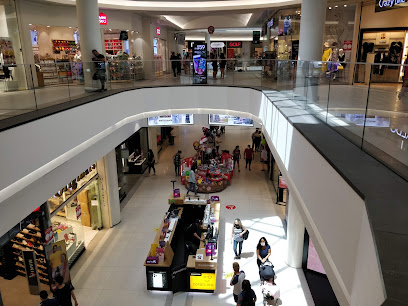
Israel Aquarium
Explore the vibrant marine life and conservation efforts at the Israel Aquarium in Jerusalem, a top tourist attraction for families and nature lovers.
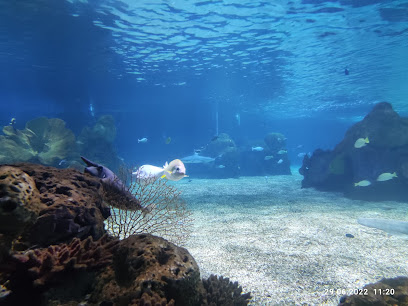
Eilat Coral Beach Nature Reserve
Explore the vibrant underwater world of Eilat Coral Beach Nature Reserve, a stunning destination for snorkeling and relaxation along the Red Sea.
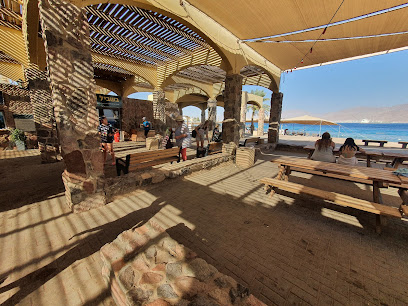
Zak’s Jerusalem Gifts
Discover unique antiques and authentic souvenirs at Zak's Jerusalem Gifts, a must-visit destination for every traveler exploring Jerusalem's rich culture.
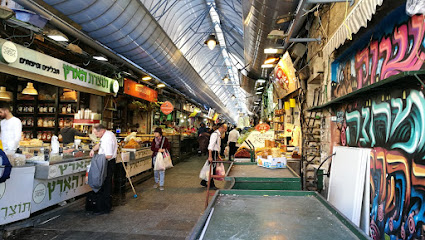
Coral Island
Discover Coral Island, Batzra's premier fish store and aquarium shop, where vibrant marine life meets exceptional shopping experiences.
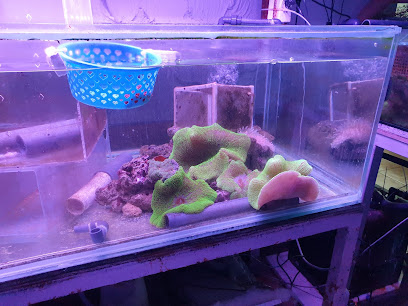
Nekudat Chen- Holyland Legacy Anointing oil and Holy water
Explore Nekudat Chen in Haifa for authentic anointing oils and holy water, embodying the spirit of the Holy Land.
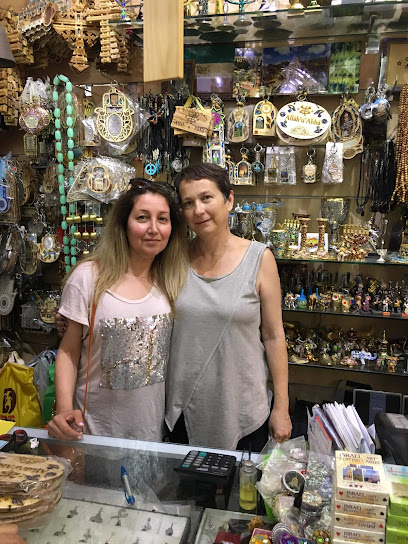
Old City Bazaar
Discover the Old City Bazaar in Jerusalem – a vibrant marketplace filled with unique gifts, rich culture, and delicious local cuisine.
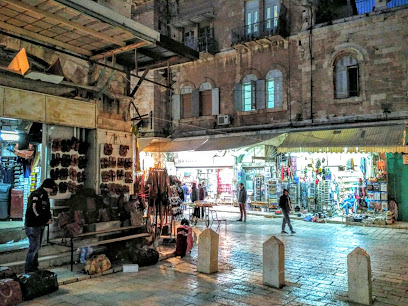
Bassam Barakat Antiquities
Explore the treasures of the past at Bassam Barakat Antiquities in Jerusalem, where history comes alive through unique artifacts and rich storytelling.
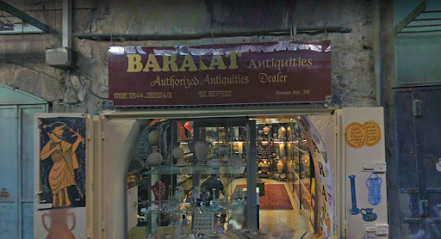
Coral reef redsea
Discover the vibrant underwater world of the Coral Reef Red Sea in Dahab, an extraordinary destination for snorkeling and diving enthusiasts.
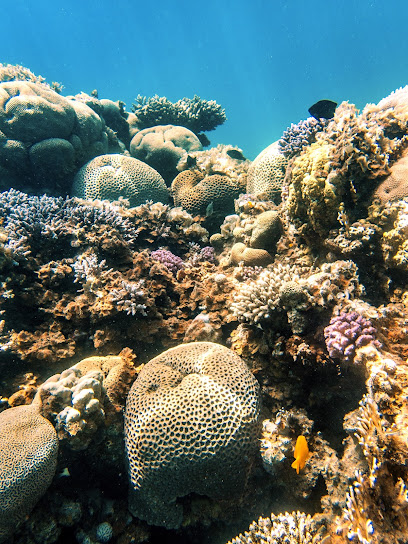
The Coral Beach
Explore The Coral Beach in Jerusalem for stunning, handcrafted jewelry reflecting the city's rich cultural heritage.
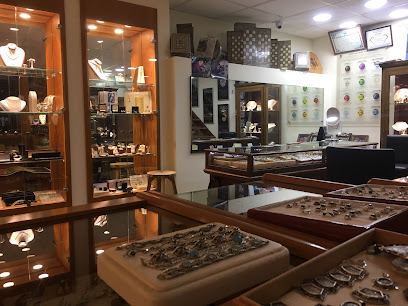
George Kouz Store
Explore George Kouz Store in Jerusalem’s Christian Quarter for unique souvenirs and local crafts that capture the spirit of the Holy City.
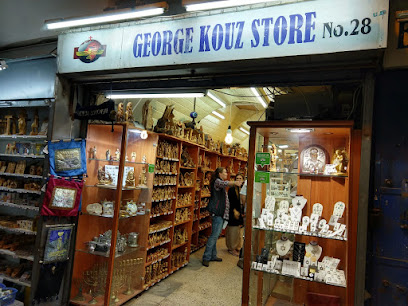
Local Phrases about Red Sea Coral Reef
-
- Helloשָׁלוֹם
[Shalom] - Goodbyeלְהִתְרָאוֹת
[Lehitra'ot] - Yesכֵּן
[Ken] - Noלֹא
[Lo] - Please/You're welcomeבבקשה
[Bevakasha] - Thank youתּוֹדָה
[Toda] - Excuse me/Sorryסְלִיחָה
[Sliha] - How are you?אֵיך אַתָה?
[Eich Ata?] - Fine. And you?טוֹב. וָאַתָה?
[Tov. Va'ata?] - Do you speak English?אַתָה מְדַבֵּר אַנגְלִית?
[Ata medaber Anglit?] - I don't understandאֲנִי לֹא מֵבִין
[Ani lo mevin]
- Helloשָׁלוֹם
-
- I'd like to see the menu, pleaseאֲנִי רוֹצֶה לִרְאוֹת אֶת הַתַפְרִיט, בְּבַקָּשָׁה
[Ani rotse lirot et hataprit, bevakasha] - I don't eat meatאֲנִי לֹא אוֹכֵל בָּשָׂר
[Ani lo ochel basar] - Cheers!לְחַיִים!
[L'chaim!] - I would like to pay, pleaseאֲנִי רוֹצֶה לְשַׁלֵם, בְּבַקָּשָׁה
[Ani rotse leshalem, bevakasha]
- I'd like to see the menu, pleaseאֲנִי רוֹצֶה לִרְאוֹת אֶת הַתַפְרִיט, בְּבַקָּשָׁה
-
- Help!עֶזרָה!
[Ezrah!] - Go away!לְךָ עוֹף!
[Lecha off!] - Call the Police!קְרָא לַמִּשְׁטָרָה!
[Kra lamishtara!] - Call a doctor!קְרָא לַרוֹפֵא!
[Kra larofe!] - I'm lostאֲנִי אוֹבֵד
[Ani oved] - I'm illאֲנִי חוֹלֶה
[Ani holeh]
- Help!עֶזרָה!
-
- I'd like to buy...אֲנִי רוֹצֶה לִקְנוֹת...
[Ani rotse liknot...] - I'm just lookingאֲנִי רַק מְסַתֵכֵל
[Ani rak masta'shel] - How much is it?כַּמָה זֶה עוֹלֶה?
[Kama ze ole?] - That's too expensiveזֶה יָקָר מְדַי
[Ze yakar medai] - Can you lower the price?אֶתָה יָכוֹל לְהוֹרִיד אֶת הַמְחִיר?
[Ata yachol lehorid et hamachir?]
- I'd like to buy...אֲנִי רוֹצֶה לִקְנוֹת...
-
- What time is it?כִּמָה הַשָׁעָה?
[Kama hasha'a?] - It's one o'clockהִיא שְֹעָה אַחַת
[Hiya sha'a achat] - Half past (10)חֲצִי (עֶשֶּר)
[Chatzi (eser)] - Morningבּוֹקֶר
[Boker] - Afternoonצָהֳרַיִם
[Tzohorayim] - Eveningעֶרֶב
[Erev] - Yesterdayאֶתְמוֹל
[Etmol] - Todayהַיוֹם
[Hayom] - Tomorrowמָחָר
[Machar] - 1אֶחָד
[Echad] - 2שְנַיִם
[Shnaim] - 3שָלוֹש
[Shalosh] - 4אַרְבַּע
[Arba] - 5חָמֵש
[Chamesh] - 6שֵׁש
[Shesh] - 7שֶׁבַע
[Sheva] - 8שְׁמוֹנֶה
[Shmoneh] - 9תְּשַׁע
[Tisha] - 10עֶשֶּר
[Eser]
- What time is it?כִּמָה הַשָׁעָה?
-
- Where's a/the...?אֵיפֹה נִמְצָא...
[Eifo nimtza...] - What's the address?מַה הַכְתוֹבָה?
[Ma haktova?] - Can you show me (on the map)?אַתָה יָכוֹל לְהַרְאוֹת לִי (עַל הַמַפָּה)?
[Ata yachol leharot li (al hamapa)?] - When's the next (bus)?מָתַי הַאוֹטוֹבּוּס הַבָּא?
[Matai haotobus haba?] - A ticket (to ....)כַּרְטִיס (אֶל ....)
[Kartis (el ....)]
- Where's a/the...?אֵיפֹה נִמְצָא...
History of Red Sea Coral Reef
-
The Red Sea Coral Reef in Israel has been a crucial part of ancient maritime trade routes for millennia. Dating back to the times of the Pharaohs, this area served as a critical junction for traders moving goods between Africa, Asia, and the Mediterranean. Artifacts such as amphorae and ancient shipwrecks found in the waters around the reef attest to its significance in maritime history.
-
The Red Sea holds profound significance in various religious texts, including the Bible. According to the Old Testament, the Red Sea is famously known for the parting of its waters by Moses, allowing the Israelites to escape from the Egyptians. While the exact location of this event is debated among scholars, the cultural and religious importance of the Red Sea remains undeniable.
-
The Nabateans, known for their capital Petra in modern-day Jordan, also utilized the Red Sea for trade. They established several coastal settlements that facilitated commerce and communication. These settlements provided vital links in the trade networks that connected the Arabian Peninsula with the wider ancient world, including the Silk Road.
-
During the Roman and Byzantine periods, the Red Sea Coral Reef area saw increased activity as the empires expanded their trade networks. Roman ports and fortifications were established along the coast, serving as hubs for goods such as spices, textiles, and precious metals. The remnants of these ports and structures can still be seen today, offering a glimpse into the area's storied past.
-
The Red Sea Coral Reef region flourished during the Islamic Golden Age, roughly from the 8th to the 14th centuries. Islamic scholars and traders navigated these waters, contributing to the exchange of knowledge, culture, and goods. The port cities along the Red Sea became melting pots of diverse cultures, languages, and innovations.
-
Under Ottoman rule from the 16th century until the early 20th century, the Red Sea continued to be a significant maritime route. The Ottomans enhanced the infrastructure and fortifications along the coast to protect their trade interests. The legacy of Ottoman architecture and influence is still visible in the region's historical sites.
-
In recent decades, the Red Sea Coral Reef in Israel has become a focal point for marine conservation efforts. Recognizing the ecological and economic importance of the coral reefs, Israel has established marine reserves and implemented stringent conservation measures. These efforts aim to preserve the delicate marine ecosystems for future generations while promoting sustainable tourism.
Red Sea Coral Reef Essentials
-
The Red Sea Coral Reef in Israel is located in the city of Eilat. The nearest international airport is Ramon International Airport, approximately 20 kilometers north of Eilat. From the airport, you can take a taxi, shuttle bus, or rent a car to reach Eilat. Regular bus services also operate between major cities in Israel, such as Tel Aviv and Jerusalem, to Eilat. The journey by bus from Tel Aviv to Eilat takes around 4-5 hours.
-
Eilat is a compact city, and many of its attractions, including the Red Sea Coral Reef, are within walking distance. Taxis are readily available and relatively inexpensive for short trips. Public buses and minibuses operate within the city, providing a convenient way to get around. Renting a car is also an option for those who wish to explore the surrounding desert areas or travel at their own pace.
-
The official currency in Israel is the Israeli New Shekel (ILS). Credit cards are widely accepted in hotels, restaurants, and shops in Eilat. ATMs are available throughout the city, allowing you to withdraw cash as needed. It is advisable to carry some cash for small purchases and in case you visit more remote areas where card payment may not be available.
-
Eilat is generally a safe destination for tourists. However, it is advisable to take standard precautions, such as avoiding walking alone at night in unfamiliar areas and keeping an eye on your belongings in crowded places. There are no specific high-crime areas targeting tourists in Eilat, but it is always best to stay vigilant and aware of your surroundings.
-
In case of emergency, dial 100 for police assistance, 101 for medical emergencies, and 102 for fire services. Eilat has hospitals and medical facilities available to assist in emergencies. It is recommended to have travel insurance that covers medical emergencies. For minor health issues, there are pharmacies in the city where you can purchase over-the-counter medications.
-
Fashion: Do dress modestly, especially when visiting religious sites. Avoid wearing overly revealing clothing. Religion: Do respect local customs and traditions. Be mindful of religious sensitivities, particularly on the Sabbath (Friday evening to Saturday evening). Public Transport: Do be respectful and give up your seat to elderly passengers. Don't eat or drink on public transport. Greetings: Do greet people with a handshake. A smile and polite greeting in Hebrew (Shalom) are appreciated. Eating & Drinking: Do try local delicacies and accept food offerings graciously. Don't refuse hospitality, as it is considered impolite.
-
To experience the Red Sea Coral Reef like a local, consider visiting the reef early in the morning to avoid crowds and enjoy the tranquility. Renting snorkeling gear or joining a guided dive can enhance your experience. Local markets in Eilat offer fresh produce and handmade crafts, providing a taste of local culture. Engage with locals, who are often friendly and willing to share insights about the best spots to explore.
Nearby Cities to Red Sea Coral Reef
-
Things To Do in Eilat
-
Things To Do in Wadi Rum
-
Things To Do in Petra
-
Things To Do in Ma'an
-
Things To Do in Dahab
-
Things To Do in Dana
-
Things To Do in Tafilah
-
Things To Do in Sharm El Sheikh
-
Things To Do in Tabuk
-
Things To Do in Beersheba
-
Things To Do in Kerak
-
Things To Do in Masada
-
Things To Do in Ein Gedi
-
Things To Do in Dead Sea
-
Things To Do in Suez








